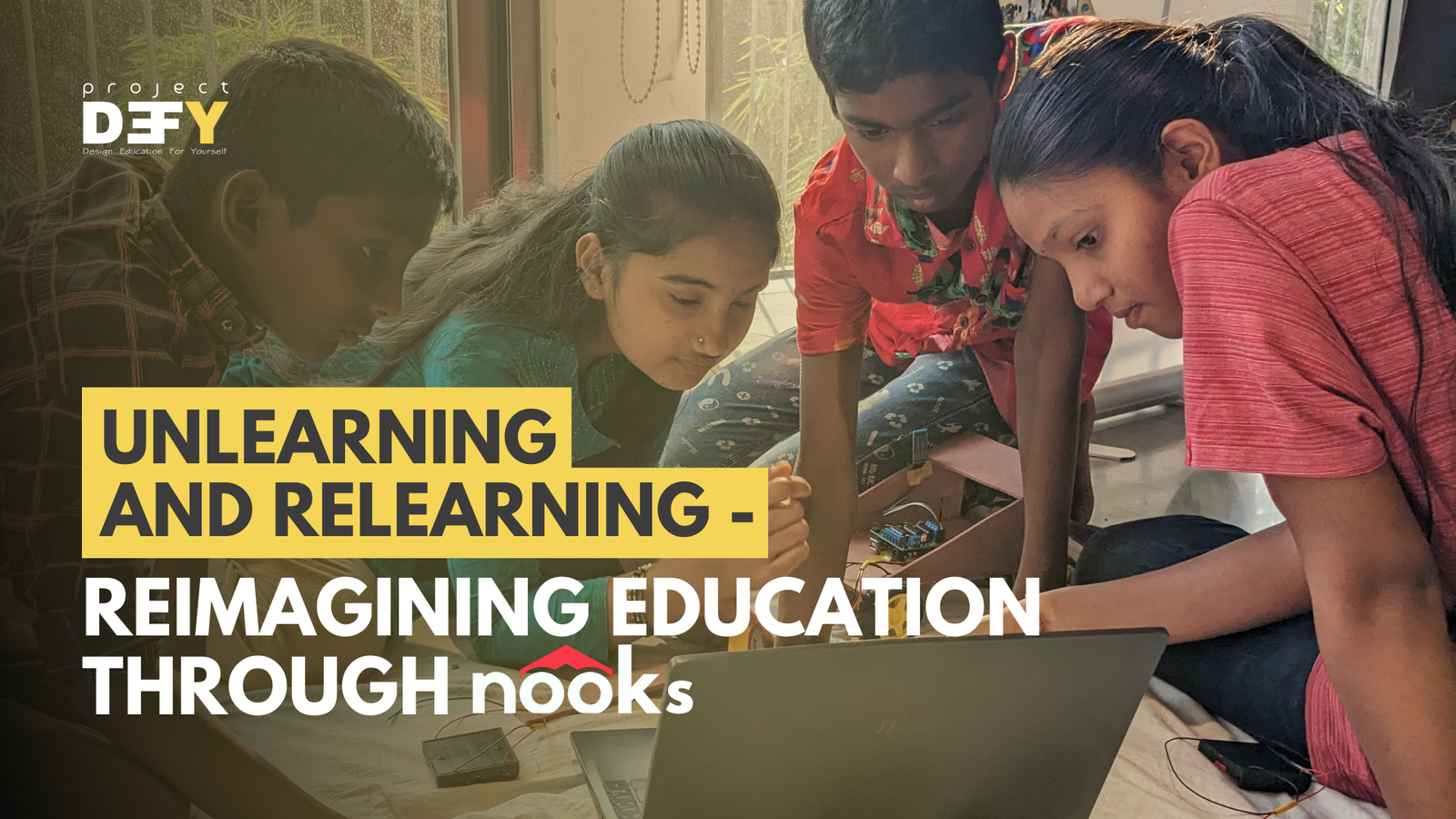
The educational landscape in itself is a vast terrain and necessitates contextual variation in our understanding of ‘what works’ to ‘fix’ education. While there is recognition of an educational crisis, in much of the ‘Global South’, conversations around solutions typically invoke images of all children having equal access to school and receiving grade-appropriate instruction. Beyond broadening access, the pursuit of ‘quality education’ includes comprehension of curriculum, which then serves as a base for progression in schools and achieving desired outcomes of education, with preparedness for the workforce receiving priority.
The linkage between schooling and employment has become so dominant that it has taken the form of what French Sociologist, Pierre Bourdieu, famously termed ‘doxa’ or “unchallenged, taken-for granted assumptions” (Gaventa, 2003) that are prevalent in society. To clarify, we do not disagree that education is a powerful equalizer or that one of the pathways of education is employment. The concern, rather, is an ‘unchallenged’ understanding of the outcomes of a ‘good’ education and the dominance of a singular truth – i.e. that educational systems are only efficient when they ultimately produce employable individuals.
Challenging doxa is no easy task. It requires a fundamental shift in understanding the plurality of educational pathways and outcomes that have existed long before institutionalized education. Alternatives do exist. However, the dominance of Montessoris, Sudburys, and Summerhills within alternate education has created a perception that seeking these pathways is accessible to a privileged few, predominantly located in affluent nations. To date, examples of alternate education in developing nations are scarce. But it is precisely where more imagination and experimentation is needed to challenge the growing pace of ecological breakdown, democratic backsliding and fragmentation of society.
Six years ago, Project DEFY, an India-based non-profit, began showing that alternate visions of education can flourish in under-resourced environments and create a form of learning that responds to many of these challenges by re-centring local and contextual knowledge. Through alternate learning spaces called ‘Nooks’[1], individuals of all age groups, genders, and socio-economic backgrounds, work together to build a community of learners that traverse a journey of collective learning and social consciousness. At a Nook, a learner is free to choose their area of interest and explore it deeply using resources ranging from the internet to technology, equipment, and knowledge of people around them. In societies where barriers to learning emerge from one’s birthplace and limit the ‘capacity to aspire’ towards futures that are unfamiliar, the Nook serves as a powerful enabler to expand and challenge these predefined trajectories. Exposure to diverse areas of learning have led learners to identify their own goals – many set up businesses to enhance livelihoods, some engaged in learning that helped solve community challenges, and others discovered their passion for a skill-set that they never knew existed before.
Natasha, a 21-year-old learner from the Nook in Bulawayo, Zimbabwe, began her learning journey with carpentry, an area that is considered “a man’s job, and not meant for females” in her community. She went on to explore other areas and made shoes from locally sourced materials, created healthy smoothie recipes and shot a documentary on teenage pregnancies. In a conversation with DEFY, she explained why she worked on this documentary. “During Covid-19 lockdowns, many teenagers were sitting idle and there were a large number of teenage pregnancies. My teammate and I thought we should create a documentary to raise awareness and consulted the community members first, who thought this was a great idea. We interviewed several people including mothers who had become pregnant. They shared the challenges they faced at home and in the community. They told me that the negative perception really affected their mental health, some fell into depression, and no one was there for them. We found that some parents did not want to support their children because they felt humiliated. Our documentary wanted to show these challenges and was meant for teenagers, but also parents so that they can understand how to support their children in such situations.” Natasha mentioned that she picked up videography, how to speak confidently in front of the camera, and use editing software for the first time during this process. She aspires to refine her filmmaking skills further and take this on professionally in the future.
Often, NGO interventions and programs aimed at ‘solving’ the education crisis take on a deficit view of communities and assume the role of saviors. Natasha’s own discovery of her passion is an exemplary illustration of how being an enabler and providing access to resources, space and an unrestricted learning environment builds agency rather than an imbalanced equation of dependency. Moreover, her journey resonates with our understanding of what transforming education looks like – of learning being much larger than individual achievement, or a quest for degrees that lead to employment. Tackling problems of tomorrow require individuals to engage in educational experiences that emphasize social consciousness and are rooted in the contextual challenges communities face. We are currently on a journey to take this vision to more parts of the world.
[1] There are currently 31 Nooks running across India, Bangladesh, Uganda, Zimbabwe, and Rwanda.
References
Gaventa, J. (2003). Power after Lukes: An Overview of Theories of Power since Lukes and Their Application to Development. Brighton: Participation Group, Institute of Development Studies.
[1]https://www.powercube.net/wp-content/uploads/2009/11/power_after_lukes.pdf/
Author : Anoushka Gupta
